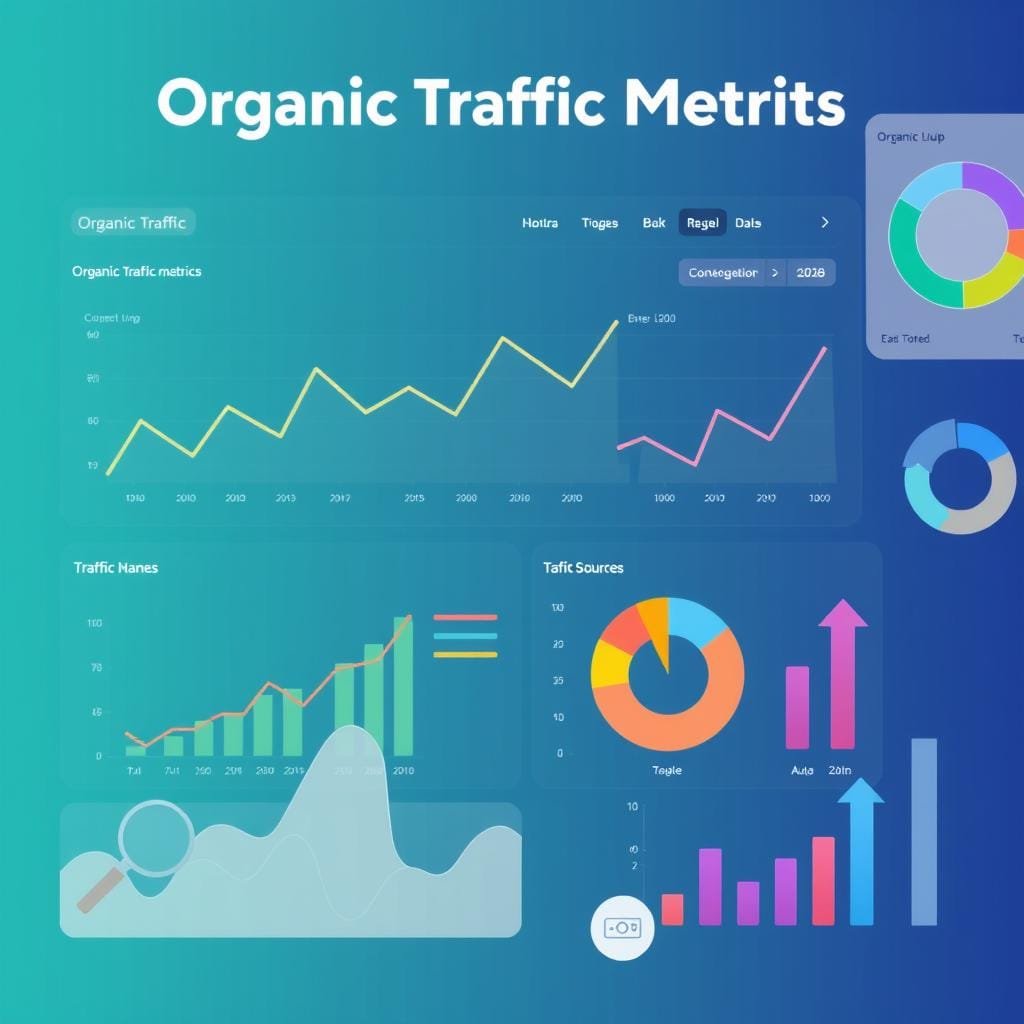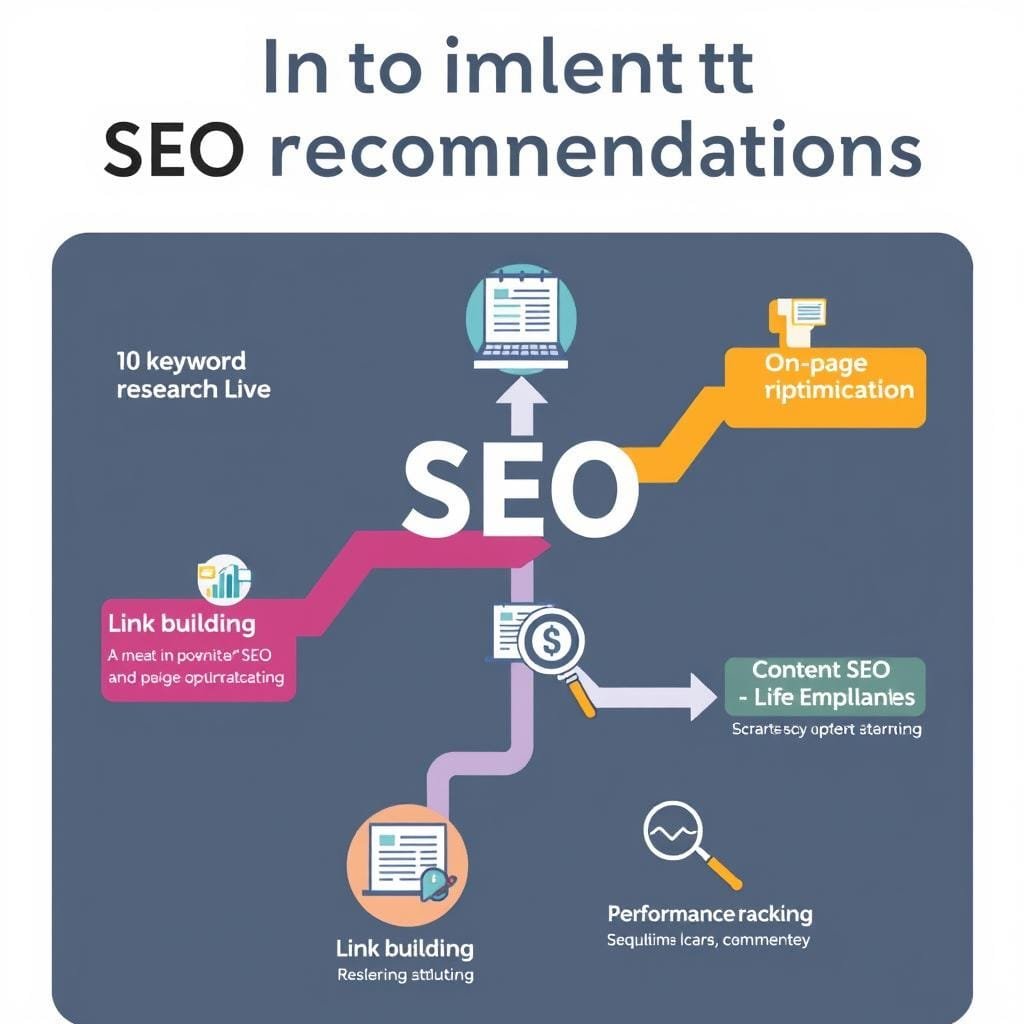Complete SEO Audit: Boost Your Website Rankings Now

Are you ready to supercharge your online presence? A complete SEO audit is key for any website wanting to rank higher. It’s not just a routine check; it’s a chance for growth and improvement. By checking your site’s current status, we find hidden errors and spots for better digital marketing.
Doing a detailed SEO audit helps spot over 140 issues. We use tools like Google Analytics and Google Search Console. These tools check indexing, crawlability, site architecture, and keyword research. We aim to make your website the best it can be, ready for success.
Also, focusing on an SEO audit means mobile-friendliness and site speed are top priorities. This makes your site better for users. To fully get into this, learn about the terms and limits of SEO audits. Check out this disclaimer for more details.
What is an SEO Audit?
Understanding an SEO audit can really help your website show up more in searches. It’s a detailed check to see how well your site works for search engines. It finds problems and spots chances to make your site more visible by tweaking it.
Definition and Purpose
An SEO audit is like a health check for your website. It looks at many things that affect how well your site does in search results. This includes how easy it is for search engines to find and index your site. By fixing these issues, you can get your site to rank better.
Importance of SEO Audits
Doing SEO audits regularly is key to keeping your site running well. With more people using mobiles to browse the web, making sure your site works well on phones is vital. An audit can spot problems like broken links or issues with search engines finding your site, which can hurt your traffic and rankings.
Key Components of an SEO Audit
An SEO audit has several important parts:
- On-Page SEO Analysis: This checks things like title tags, meta descriptions, and content to make sure they’re good for search engines and easy to read.
- Technical SEO Assessment: This part looks at how easy it is for search engines to crawl your site, and how fast it loads.
- Backlink Analysis: It examines the quality of links pointing to your site. Good links from trusted sites can really help your rankings.
| Component | Description | Impact on SEO |
|---|---|---|
| On-Page SEO | Evaluation of title tags, meta descriptions, and content | Improves relevance and user engagement |
| Technical SEO | Assessment of site architecture and load times | Enhances crawlability and core web vitals |
| Backlink Analysis | Review of backlink quality and quantity | Strengthens domain authority and referral traffic |
The Benefits of Conducting an SEO Audit
Doing an SEO audit can really change how your website works. It helps you get better rankings, make your site easier to use, and bring in more visitors. Let’s dive into these benefits.
Improved Search Engine Rankings
An SEO audit finds and fixes problems that stop your site from showing up in search results. Fixing broken links, making your site work on mobile, and speeding up your pages are key. These steps help your site rank better and attract more visitors.
Search engines look at over 200 things when ranking sites. A good SEO audit makes sure you’re doing well in these areas. This keeps you ahead of the competition.
Enhanced User Experience
A website that’s easy to use is good for both visitors and search engines. An SEO audit shows you how to make your site better for users. This means your site will be more engaging and people will want to stay longer.
When users can easily find what they need, they’re more likely to explore your site. This creates a positive cycle for your website’s user experience.
Increased Website Traffic
Using the tips from an SEO audit can really increase your website’s traffic. By making your content better for search engines, you attract more visitors. This not only makes your brand more visible but also brings in more leads and sales.
Tracking how your keywords are doing after the audit helps you see if your SEO is working. This lets you make changes to keep improving.
| Benefit | Description |
|---|---|
| Improved Search Engine Rankings | Enhancing visibility through the resolution of technical issues and optimizing for ranking signals. |
| Enhanced User Experience | Creating a user-friendly site that increases engagement and conversion rates. |
| Increased Website Traffic | Boosting organic traffic by optimizing content and capturing relevant keywords. |
How to Prepare for an SEO Audit
Getting ready for an SEO audit needs careful planning and detail. By setting up well, you can get valuable insights from your audit. Here are key steps to start with.
Set Clear Objectives
It’s important to have clear goals for your audit. Do you aim to boost traffic, rank higher in search, or make your site better for users? Having clear goals helps tailor the audit to fit your business needs.
Gather Necessary Tools and Resources
Having the right tools makes the audit easier. There are many software options to help collect and analyze data. Some top tools include:
| Tool | Description |
|---|---|
| Google Analytics | Tracks user behavior, audience insights, and website performance. |
| SEMrush | Helps with keyword research, domain analysis, and tracking competitors. |
| Moz Pro | Provides tools for on-page optimization, link analysis, and page audits. |
Identify Your Target Audience
Knowing your audience is key. Understanding who visits your site helps create content they’ll love. Use surveys and analytics to get to know your audience better. This info is crucial for your SEO plans.
Step-by-Step Guide to Performing an SEO Audit
Doing a detailed SEO audit is key to making your website more visible and effective. It covers on-page optimization, off-page SEO, and technical SEO checks. Let’s explore each part to boost your site’s performance.
On-Page SEO Analysis
On-page SEO makes your web pages better for search engines. It includes several important steps:
- Keyword Optimization: Check your content for the right keywords.
- Meta Tags: Look at your titles and descriptions to make sure they’re good.
- Content Quality: Make sure your content is top-notch and unique.
- Site Architecture: A good site structure helps search engines index your site better.
Off-Page SEO Evaluation
Off-page SEO looks at things outside your site that affect your rankings. The main areas to focus on are:
- Backlink Profile: Look at the quality and relevance of your backlinks.
- Social Media Presence: Check how your brand is doing on social media to get more visitors.
- Competitor Insights: Study your competitors to find new strategies to use.
Technical SEO Assessment
Technical SEO works on your website’s backend to improve its performance. Here’s what to check:
- Mobile Optimization: Make sure your site works well on mobile devices since most searches come from them.
- Site Speed: Google values fast page loading times, so look for ways to speed up your site.
- Core Web Vitals: Improve user experience by focusing on metrics like Largest Contentful Paint (LCP) and Cumulative Layout Shift (CLS).
- Indexing Issues: Make sure all important pages are indexed by Google.
By following these steps, you can find ways to improve your website. Focus on on-page, off-page SEO, and technical SEO to make your site better. Use tools like Google Analytics to understand how users interact with your site.
| SEO Component | Description | Tools for Analysis |
|---|---|---|
| On-Page SEO | Optimizing individual webpages to improve rankings | Yoast SEO, Google Search Console |
| Off-Page SEO | Building domain authority through backlinks and social media | Ahrefs, SEMrush |
| Technical SEO | Enhancing backend aspects for better crawl ability and speed | Screaming Frog, GTmetrix |
Common SEO Audit Tools and Software
Using the right SEO audit tools can really boost your website’s performance. There are many options out there, fitting different needs and budgets. Here are some top tools to check out:
Google Analytics
Google Analytics is a must-have for website owners. It gives deep insights into who visits your site and how they interact with it. Its detailed reports help you see how well your site is doing and plan better SEO strategies.
This tool is key for tracking important metrics like traffic and how engaged visitors are.
SEMrush
SEMrush is known for its top-notch keyword tracking and competitor analysis. It starts at $139.95 a month and has a Site Audit feature to find and fix technical SEO issues. The reports it gives offer clear steps to improve your site’s performance.
Moz Pro
Moz Pro has tools for backlink analysis and on-page optimization, crucial for better search engine rankings. Its easy-to-use interface makes it great for both newbies and seasoned marketers. It helps you keep improving your SEO plans.
For a detailed look at different SEO audit tools and software, check out this comprehensive guide. Each tool has its own strengths. Knowing what you need will help you pick the best one for you.
Key Metrics to Evaluate During an SEO Audit
Understanding key SEO metrics is crucial for improving your website. During an audit, tracking specific metrics helps you see how your site performs. By focusing on organic traffic, bounce rate, and keyword tracking, you can make better SEO decisions.
Organic Traffic
Organic traffic is visitors who find your site through search engines without paying for ads. Watching organic traffic shows if your SEO is working. More organic visitors mean your content is hitting the mark with users and search engines. Use Google Analytics to see how your site is doing over time.
Bounce Rate
Bounce rate is when visitors leave your site after seeing just one page. A high bounce rate might mean your content isn’t engaging or meets user expectations. To lower bounce rate, improve user experience and offer content that keeps visitors interested. Google Analytics helps measure this important metric.
Keyword Rankings
Keyword tracking shows how your site ranks for certain search terms. By watching keyword rankings, you can see which terms bring traffic and adjust your strategy. Knowing top-performing keywords helps optimize your content and boost your site’s visibility. Regularly tracking keywords is key to improving your SEO.

| Metrics | Description | Importance |
|---|---|---|
| Organic Traffic | Number of visitors from unpaid search results. | Indicates SEO effectiveness. |
| Bounce Rate | Percentage of visitors who leave after one page. | Reflects content engagement. |
| Keyword Rankings | Position of your site for specific search terms. | Helps assess visibility and optimize content. |
Analyzing Your Competitors
Understanding your competitive landscape is key to effective SEO strategies. Analyzing competitors reveals opportunities and challenges in your niche. A thorough competitor analysis lets you compare your site with similar ones. Here’s how to do it.
Identifying Major Competitors
First, find your main competitors. They often rank high for the same keywords and offer similar products or services. Tools like Semrush help by showing who shares your keywords and traffic. Knowing your competitors helps you see how competitive your niche is.
Conducting Competitor SEO Audits
Doing an SEO audit on competitors can give you lots of useful info. Look at:
| Metrics | Description |
|---|---|
| Keyword Gap Analysis | Finds keywords competitors rank for but you don’t, helping improve your SEO. |
| Technical SEO Health | Use what works for competitors to improve your site, fixing any issues. |
| Backlink Profiles | Seeing how competitors get backlinks can show you what content works. |
| Lost Keyword Rankings | Looking at lost keywords can help you find new opportunities. |
Learning from Competitor Strategies
It’s important to learn from your competitors’ wins and losses. By using their successful strategies and fixing their weaknesses, you can lead your niche. For example, find content gaps your competitors have and offer something unique. Tools like Ahrefs help find these gaps. Also, study their backlink successes and keywords to guide your own research.
Implementing SEO Audit Recommendations
After finishing an SEO audit, it’s key to make a detailed plan for following up on suggestions. Focus on the most important tasks first. This way, you use your resources wisely and make big changes to your site.
Prioritizing Action Items
Find out which SEO tips will help the most. Fixing technical issues like page speed is crucial. Make sure your pages load in three seconds or less.
Slow sites scare off 53% of users. So, work on making your site fast and user-friendly. This also keeps you up-to-date with search engine changes.
Tracking Changes and Progress
Start tracking your changes right away. Use tools like Google Analytics and SEMrush to watch your site’s performance. These tools show how your changes affect your site’s traffic and rankings.
Keeping an eye on your progress helps you see how well your plan is working. Regular checks help you improve your site even more. This way, you can make your site better for users and search engines.
Continuous Improvement Strategies
Keeping your site up-to-date is essential. Regularly check your SEO tasks and requirements. This is important because Google’s rules change often.
Plan to do SEO audits regularly. This helps you stay current with new trends and standards. Focus on improving user experience, keyword use, and backlinks. This keeps your site competitive and strong online.

Conclusion: Elevating Your SEO Game
As we conclude, it’s important to think about the many benefits of SEO audits for your digital marketing. By following the steps we’ve outlined, you’ll see better search rankings and more organic traffic. A good audit also improves user experience and addresses site security, page speed, and content quality.
Recap of Benefits and Steps
Regular SEO audits are key. They help find technical issues, improve content, and refine strategies. Factors like mobile optimization and quality backlinks are crucial for your site’s authority. This shows SEO is a continuous effort, not just a one-time task.
Encouragement for Ongoing Audits
Keep up with SEO audits to keep your site healthy and visible. Stay current with SEO trends to adapt to algorithm changes and user behaviors. This proactive approach keeps your site competitive and relevant in the digital world. Make SEO audits a priority, engage with your audience, and watch your online presence grow!
Disclosure: This post contains affiliate links. If you make a purchase through these links, I may earn a small commission at no extra cost to you.






